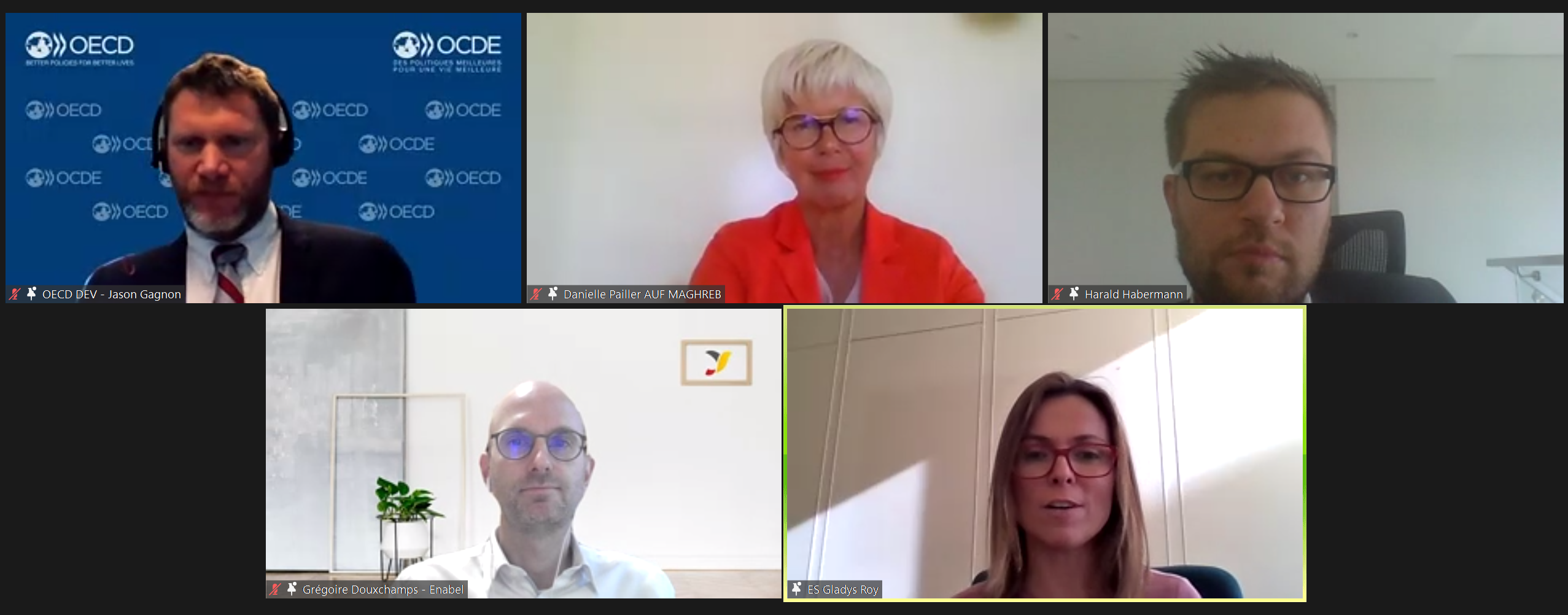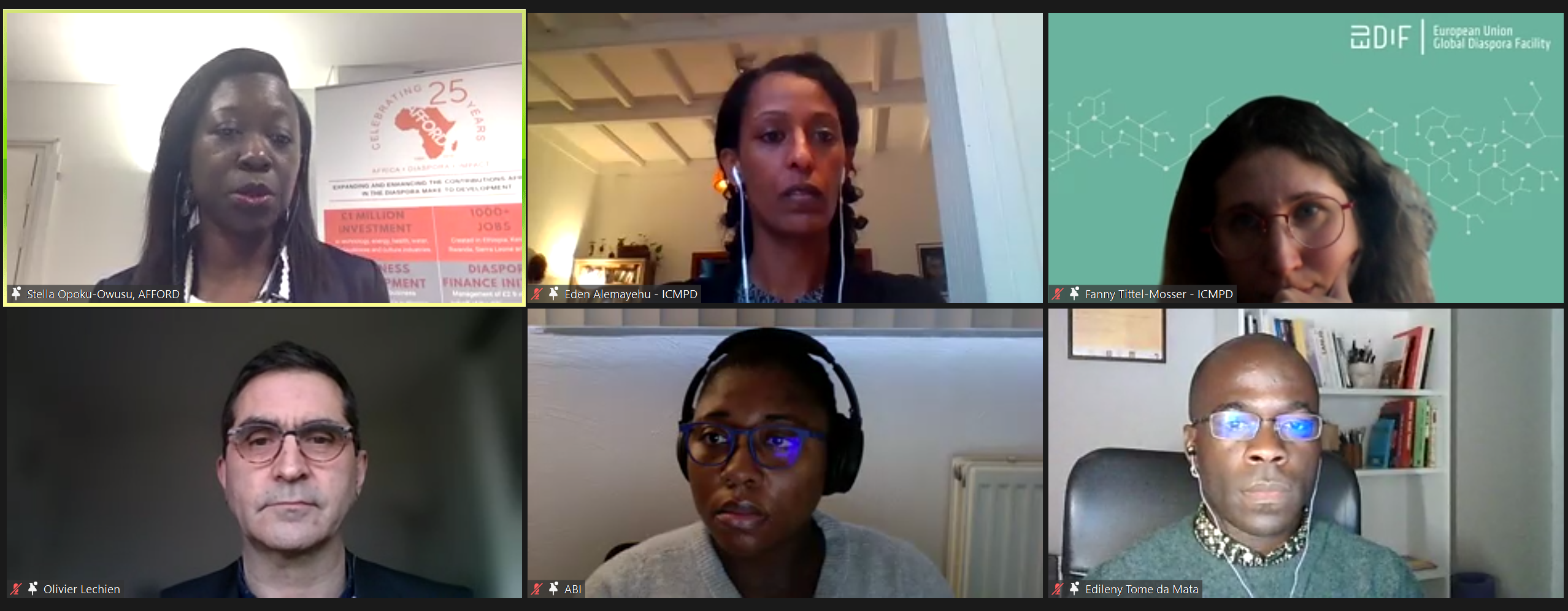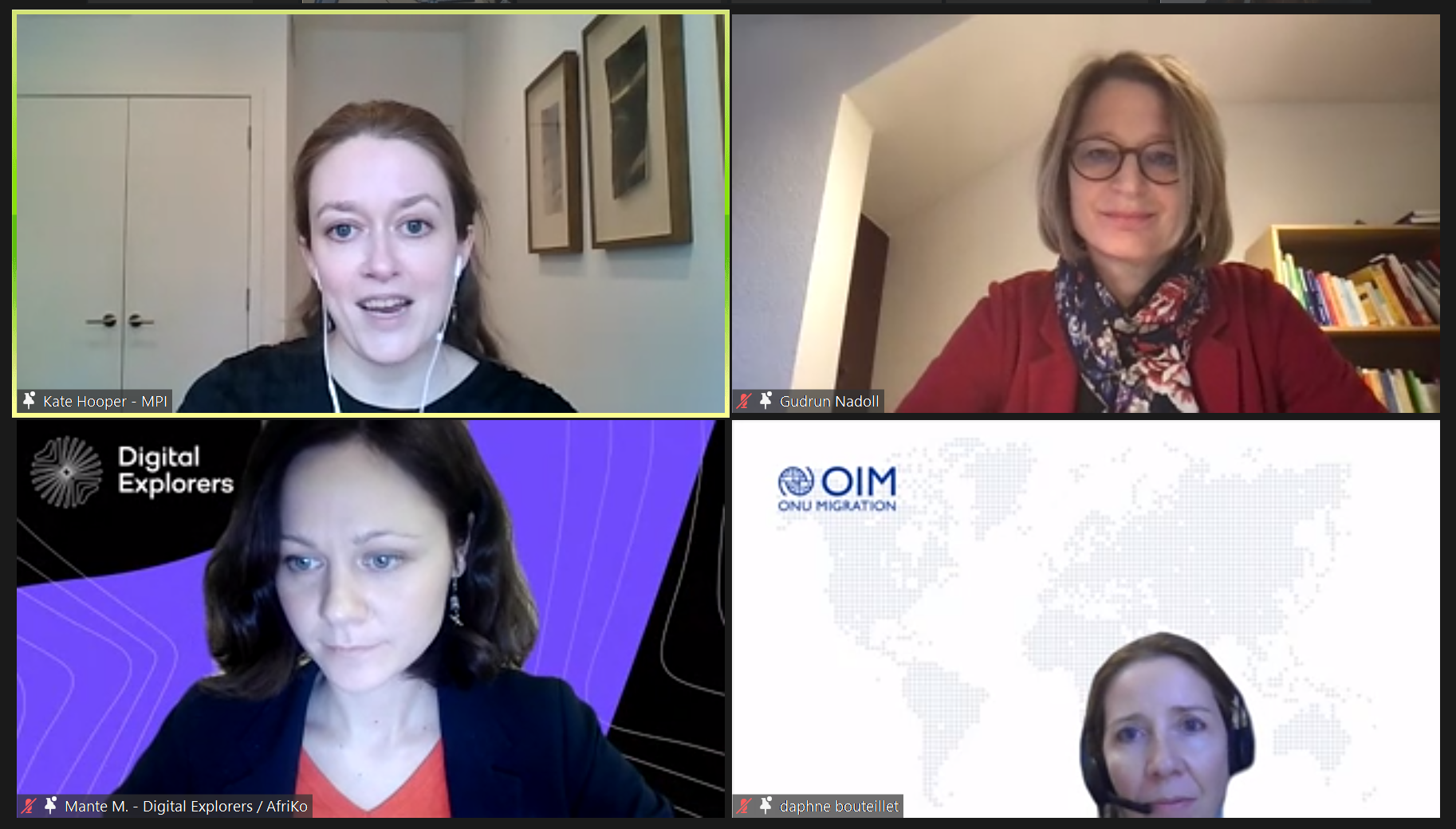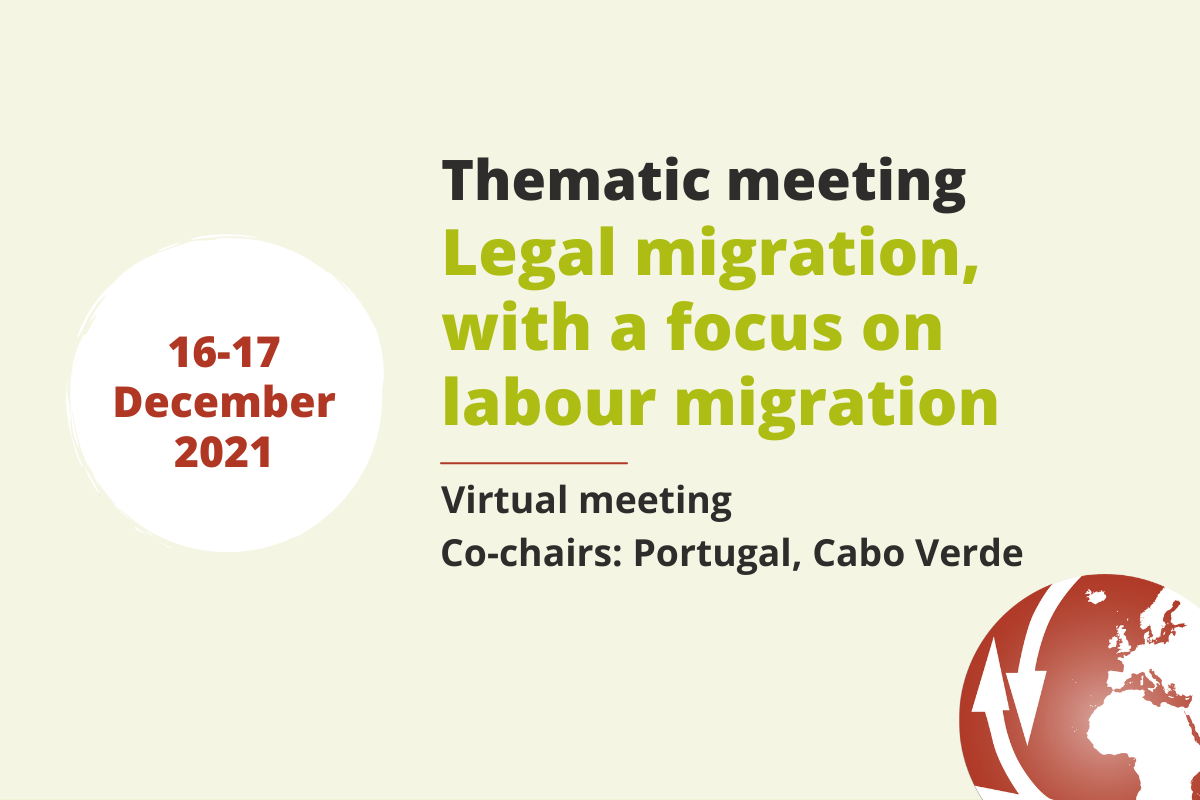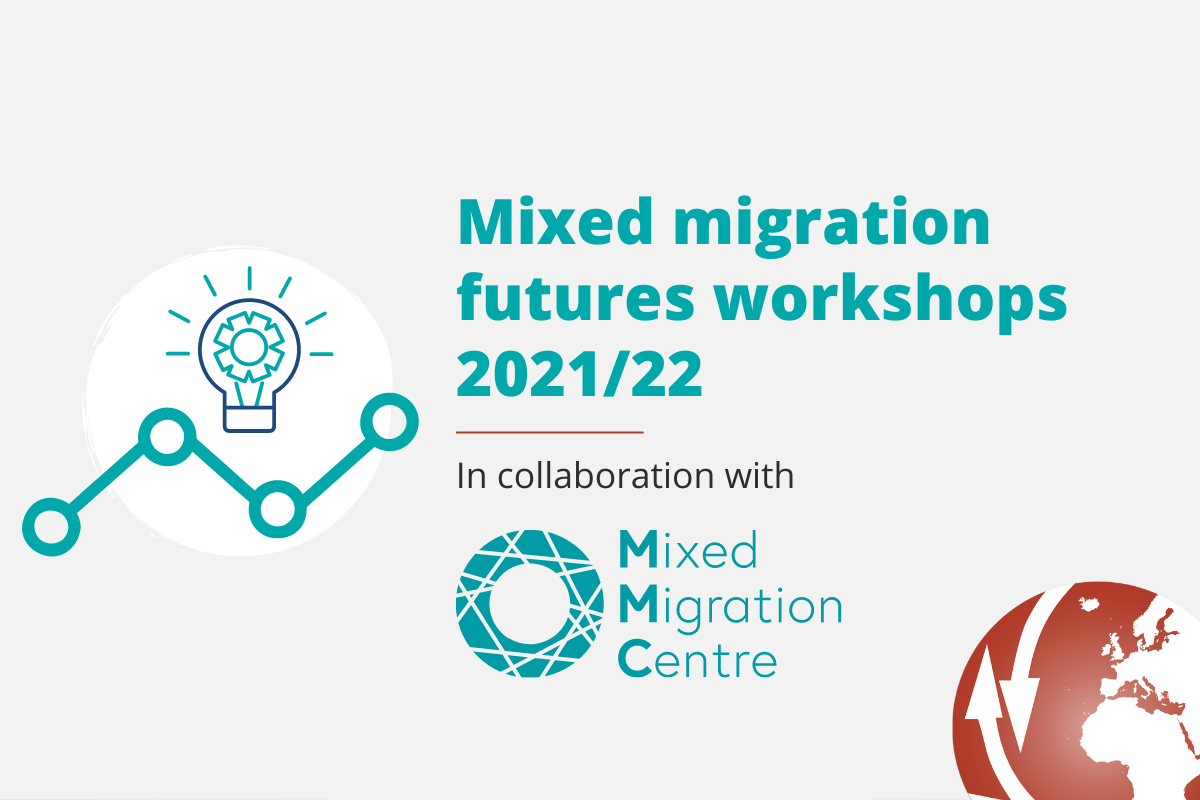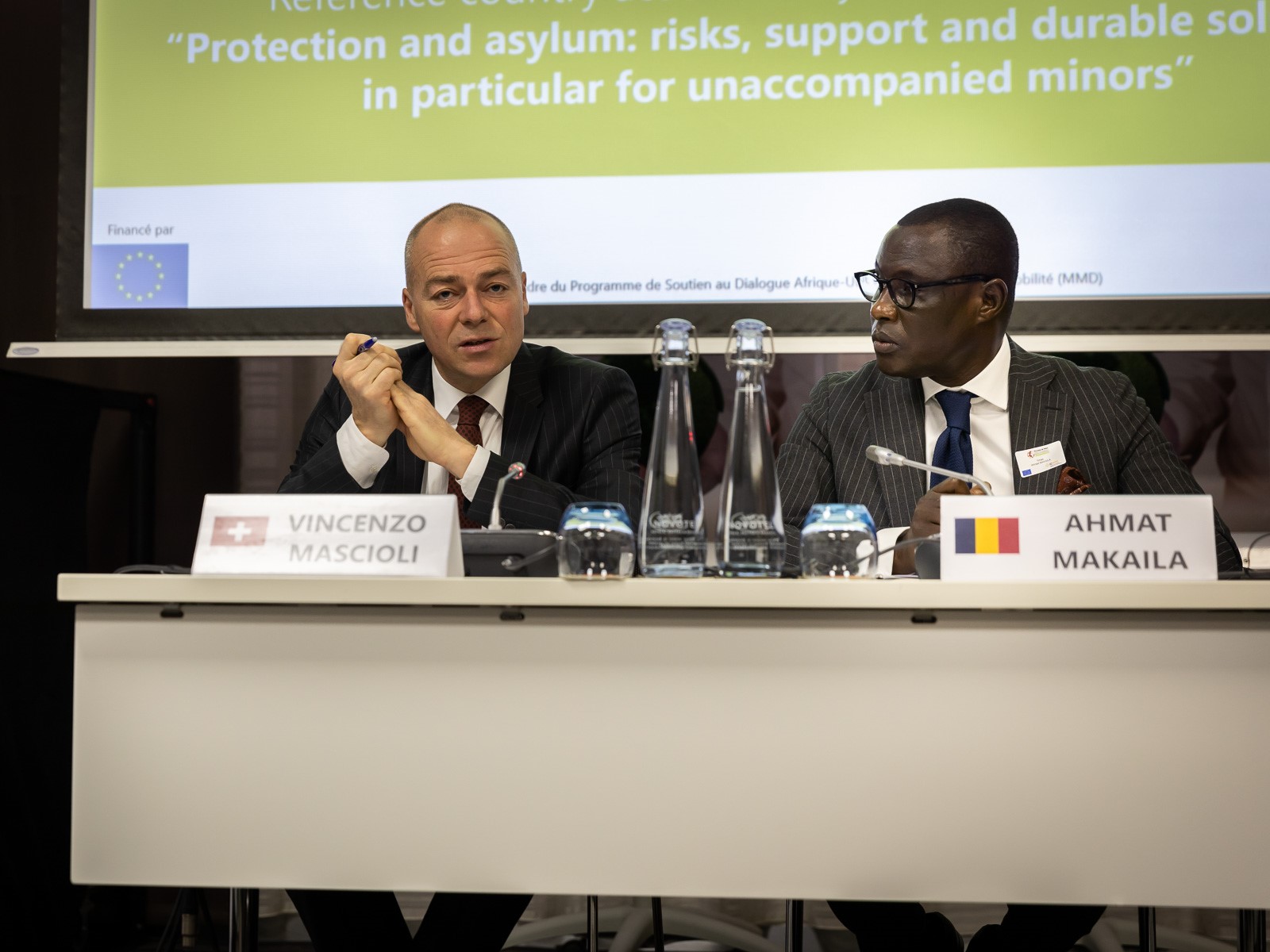The first ever meeting of the Rabat Process focusing specifically on labour migration took place on 16th and 17th December 2021. The virtual meeting, originally planned to take place in Lisbon, was co-chaired by Portugal and Cabo Verde, reference countries for legal migration and mobility (domain 2 of the Marrakesh Action Plan). Despite the constraints imposed by the COVID-19 pandemic, the virtual meeting attracted a diverse public of over 100 participants, comprising 25 Rabat Process partner countries and ten international organisations and civil society organisations.
The importance that the Rabat Process partners attach to the topic of legal migration was also illustrated by the high-level representatives speaking at the opening ceremony, including the Minister of Home Affairs and Justice of Portugal and the Minister of Foreign Affairs, Cooperation and Regional Integration of Cabo Verde. Spain, the current Rabat Process Chair, was represented by its Secretary of State for Migrations who announced that legal migration will be one of Spain’s priorities in 2022 and that there will be a thematic meeting on the subject later this year.
Exchanging best practices on policies and projects on labour migration
The virtual meeting created a space for the exchange of best practices on the development of projects and policies on legal migration among political decision makers, operational actors and partners of the Rabat Process. The outcome document provides an overview of the main conclusions of the meeting and the challenges and opportunities linked with labour migration between the EU and its partner countries. More specifically, the outcome document includes information on:
- The Euro-African context of legal migration;
- Pilot projects for Talent Partnerships: models of partnerships between the EU and Africa;
- Labour migration initiatives and models to strengthen Euro-African relations;
- Examples of initiatives and projects aiming to promote mobility of recent graduates and young talent;
- Examples of projects and initiatives concerning the multi-party and sectorial approach to labour migration.
The following findings and conclusions stood out particularly:
- There is a variety of global and continental political frameworks regarding labour migration in Africa and there are many migration governance challenges.
- The COVID-19 pandemic has had a strong impact on mobility and on legal migration systems, in particular in terms of migration governance.
- EU pilot projects on legal migration implemented since 2018 have made it possible to try out different labour migration schemes between the EU and partner countries.
- The Global Skill Partnerships initiative makes it possible to make skilled migration beneficial for countries of origin, countries of destination and migrants.
- The THAMM initiative (Towards a Holistic Approach to Labour Migration Governance and Labour Mobility in North Africa) is a good example of a successful labour migration model between the EU and North Africa.
- The diaspora is a key actor in the implementation of labour migration programmes.
- The private sector plays a crucial role in labour migration projects by strengthening the mobility of workers towards the EU.
Resources and downloads
The following resources provide further insights into the best practices shared by the speakers:
- Outcome document of the thematic meeting on legal migration with a focus on labour migration, held on 16th – 17th December 2021
- Speakers' biographies
- Existing global and continental policy frameworks on legal labour migration - International Labour Organization (ILO)
- Results of the 2020 data collection on Domain 2 of the Joint Valletta Action Plan (JVAP) in the Rabat Process region - Africa-EU Migration and Mobility Dialogue (MMD)
- Talent Partnerships: towards enhanced cooperation between the EU and partner countries – DG HOME, European Commission
- EU Pilot Projects on Legal Migration under MPF – Migration Partnership Facility (MPF)
- Global Skills Partnership - Center for Global Development (CGD)
- Labour migration models: THAMM initiative - ILO
- GECCO & WAFIRA – Adding value to circular mobility - Ministry of Inclusion, Social Security and Migration of Spain
- Skills Initiative for Africa (SIFA) – NIRAS-IP Consult
- The impact of the COVID-19 pandemic on mobility and legal migration schemes - Migration Policy Institute (MPI)
- Implementation of the Talent Partnership: What potential role for the diaspora? - European Centre for Development Policy Management (ECDPM); International Centre for Migration Policy Development (ICMPD)
- Information on the INSPIRE project: website and project flyer. A project by ICMPD and the German Federal Ministry for Economic Cooperation and Development (BMZ) that contributes to the development of skills and employment opportunities in partner and EU countries through migration and mobility-based skills partnerships that benefit migrants, countries of origin and destination.
Photos
Opening ceremony

Thematic roundtables
